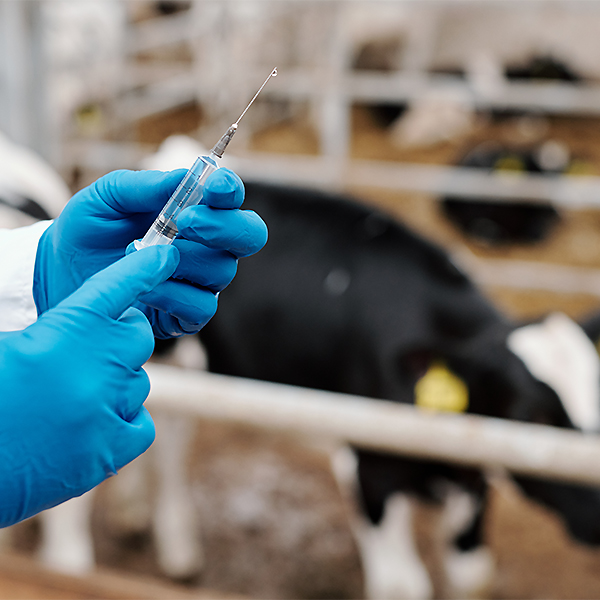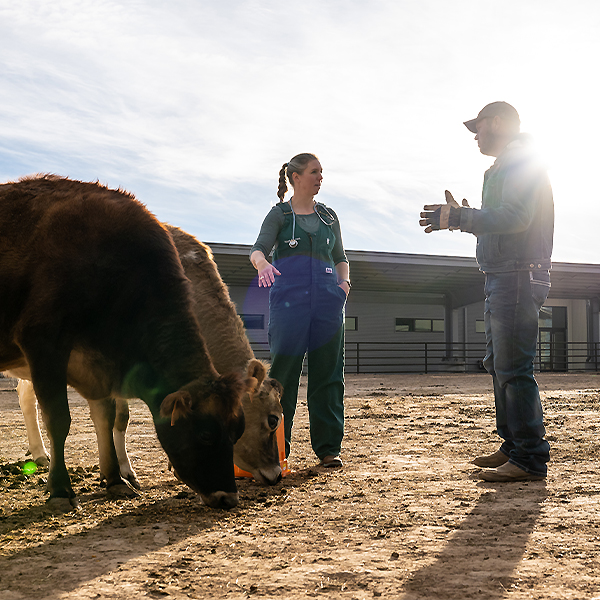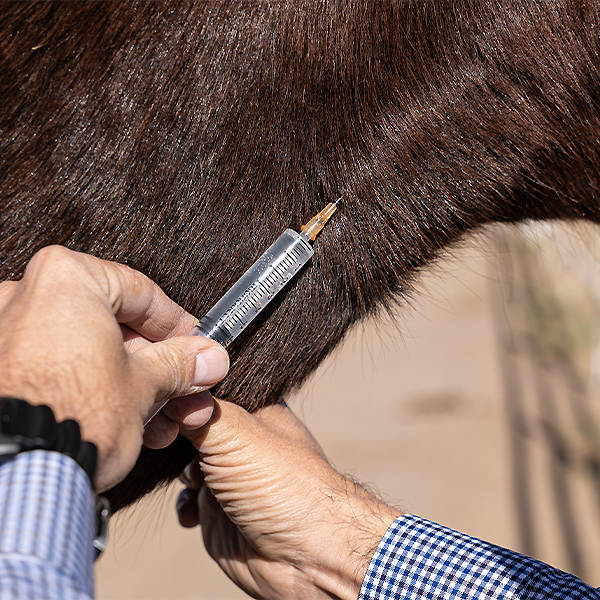
Veterinarian and professor, Clint Roof, talks about the new over the counter antibiotic rules for livestock.
On June 11, 2023, a new over the counter antibiotic rule took effect in the United States. This new rule requires that antibiotics previously available without prescription, or over the counter, now requires a prescription from a veterinarian to be purchased.
“It means that local feed stores that previously sold these products will not be able to continue to sell them unless they become a pharmacy,” said Clint Roof, assistant professor of general practice at Texas Tech University’s School of Veterinary Medicine. “These stores will be allowed to sell any products they have left on the shelf until they are gone.
“At this time, the products will bear a label change requiring a prescription (script) to be purchased. Please do not rush out to buy up antibiotics, the likelihood is they will expire prior to being needed and risk being used for inappropriate treatment.”
Before joining the School of Veterinary Medicine, Clint Roof served several years as a veterinarian who provided livestock animal care across southeastern New Mexico, West Texas, and even West Oklahoma. Through a series of questions, Roof explains the purpose of this new rule and how it will impact livestock health.
What is the purpose of this new rule?
The purpose of this rule is to provide a more judicious use of antibiotics that are medically important to both humans and animals. This will help reduce the occurrence of antibiotic resistance and ensure that they are being used for the proper situation. This does not mean that an owner will need to buy the antibiotics from a veterinarian, they can still buy them online, or through a pharmacy if they prefer. However, a script will still be needed.
Why is this rule important?
This rule is going to require producers and owners to work closely with their veterinarian and have a valid veterinary-client-patient relationship (VCPR). Having a VCPR will better serve the animals and the owner, and to help reduce the occurrence of antibiotic resistance in both humans and animals. This is due to the fact that the veterinarian will be familiar with that owner’s animals, protocols, and routines which will allow them to provide the best treatment and prevention options to that client.
What are the advantages and disadvantages of the rule?
The advantages of this rule include ensuring that antibiotics are being used in the proper situations and proper frequency to help treat livestock more effectively. Clients and producers that already have a VCPR probably won’t even notice a change or delay for these items.
The disadvantages are the possibility of veterinarians not being available to establish a VCPR due to a shortage of veterinarians in some regional areas. This means that an owner will not be able to walk into a farm supply to purchase antibiotics when they have a sick animal. They will need to be proactive and establish this relationship in advance. It also means that there may be livestock animals that go without antibiotics because their owner did not have a VCPR or that the owner refuses to work with a veterinarian.
What are usually the most popular over the counter antibiotics?
The most popular over the counter antibiotics include penicillin, tetracycline drugs, sulfa drugs, some cephalosporin drugs, and intramammary tubes. Non-antibiotic medications such as non-steroidal anti-inflammatories (NSAIDs), antiparasitic drugs (e.g. Ivermectin), prebiotics and probiotics, vaccinations, and non-antibiotic wound medications will still be available without a prescription.
How does this rule affect humans and animals? 
This rule is going to help prevent animals from entering our food supply with unknown medicine residues. It will also provide better treatment for our livestock when they are sick. Once again, it will allow for more specific use of antibiotics for the correct situation thereby decreasing the occurrence of antibiotic resistance.
In 2017, a similar rule was passed for any antibiotics used in feed or water for livestock as a veterinary feed directive (VFD). Since its passing, the amount of antibiotics given to livestock in feed or water is down significantly and has helped preserve the effectiveness of these medically significant antibiotics for both humans and animals.
What does this look like for the future of livestock antibiotics?
This rule means that the future of antibiotic use is going to depend on the VCPR that is developed between owners or producers to treat their animals. Owners will not be able to just pick up over the counter antibiotics like they once did without talking to their veterinarian. However, it does mean that once a veterinarian has a valid VCPR and understands a farm or livestock operation that they may dispense antibiotics to be on hand and establish protocols with the owner that best fits their needs and the health of their livestock.
How is the Texas Tech University School of Veterinary Medicine helping?
Due to the shortage of rural and regional veterinarians it is the purpose of Texas Tech University School of Veterinarian Medicine to produce great veterinarians who serve these areas and aid producers and their livestock in the future.
